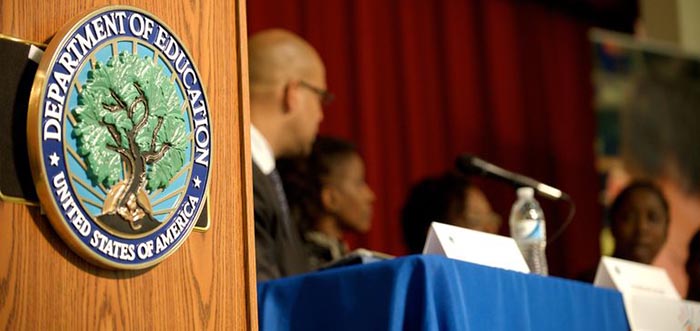
From Higher Ed Dive
By Jeremy Bauer-Wolf
May 18, 2022
Dive Brief:
The U.S. Department of Education announced Wednesday it will continue to waive parts of its process for auditing students’ financial aid documentation through the 2022-23 enrollment cycle.
Procedures for verifying information reported on the Free Application for Federal Student Aid, or FAFSA, were first relaxed last year, which department officials said was an acknowledgement of students’ hardships brought on by the coronavirus pandemic.
College access advocates view financial aid verification as especially burdensome to underrepresented students and have called for the department to scale back the practice permanently.
Dive Insight:
Each year, new and returning college students fill out a FAFSA, allowing them to unlock federal loans and scholarships. The Education Department’s office of Federal Student Aid selects a portion of those students to complete a verification audit, which entails providing additional financial information, such as tax records, to their respective colleges.
Verification attempts to ensure the integrity of the financial aid system and root out potential errors and fraud. However, it’s often arduous for students, who have difficulty understanding complex forms involved in the process and tracking down the requested information.
This is particularly true for historically vulnerable populations, such as Black and Latino students, who The Washington Post found have been disproportionately targeted for verification over the last decade or so.
The process also reportedly burdens financial aid administrators who supervise the process.
In recent years, the Education Department has audited roughly a quarter of FAFSA filers, which it said last year amounted to more than 3 million federal Pell Grant recipients. In comparison, the IRS typically reviews less than 1% of tax returns.
Last year, the Education Department narrowed the scope of verification for the 2021-22 FAFSA cycle by exclusively focusing on potential identity theft and fraud, in light of pandemic-induced stresses.
It will continue to maintain its focus on fraud and theft this year. The Education Department said this could result in more than 100,000 students enrolling with financial aid who otherwise may not have for the 2022-23 academic year.
The move earned praise from college access activists.
The National College Attainment Network’s CEO, Kim Cook, said in a statement that officials should continue to break down barriers for applicants amid financial problems the pandemic caused.
Cook drew attention to a continued decline in the number of FAFSA completions, which fell about 9% year over year as of the end of March.
“The impact of verification relief extends beyond securing financial aid,” Cook said. “It also allows our advisers and school counselors to spend more of their time on outreach and support to help students stay on track for their postsecondary goals.”
National Association of Student Financial Aid Administrators President Justin Draeger in a statement noted continued employee churn in financial aid offices. He said financial aid workers “are struggling to help students through this bureaucratic process, which often results in little to no change in a student’s Pell Grant eligibility.”
“Financial aid administrators across the country will put these waivers to good use, and as they did last year, will fast track financial aid dollars to students who are otherwise mired in bureaucratic red tape,” Draeger said.
The Education Department said for the future, it will consider how to adjust verification to ensure it is “robust and equitable” and will take into account the burden on students, families and colleges.
Photo: The image by U.S. Department of Education is licensed under CC BY 2.0
Read this and other stories at Higher Ed Dive

